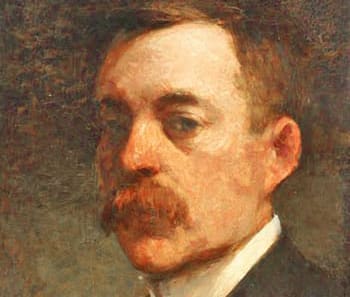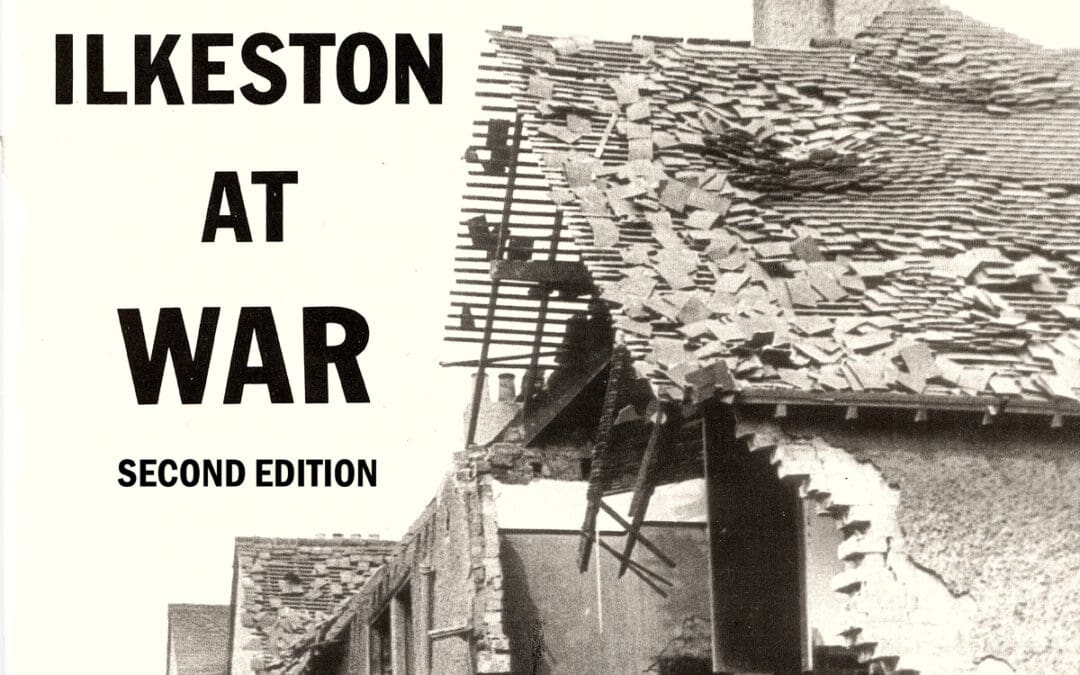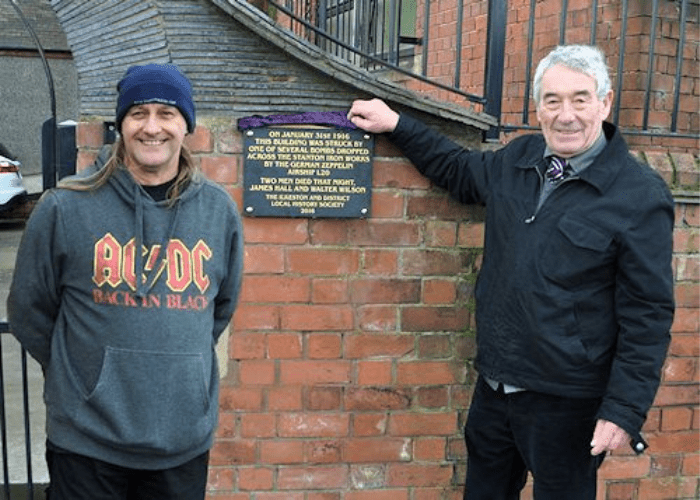The Society’s commemorative plaque to the town’s almost forgotten son is at 61 South Street — Ogden’s the Butcher.
Harry Stanley Hawley, known as Stanley, was born on South Street and became an internationally known pianist and composer. His father was a butcher and died before Stanley’s first birthday. Stanley attended Derby Grammar School on a scholarship and at only 15 he became organist at the Independent Chapel in Pimlico, Ilkeston. A year later he won a scholarship to the Royal Academy of Music. Two of his compositions, The Bells and Riding through the broom were performed at the Proms in 1895.
When composer Edvard Grieg heard Hawley play his piano concerto at the Queen’s Hall he declared that Hawley played it much better than him! He was secretary of the Royal Philharmonic Society and did much to promote British Music, being elected a Fellow of the Royal Academy of Music. His portrait by Frank Mura hangs in the gallery there. In 1907 he played the organ at his mother’s funeral service in St Mary’s Church, Ilkeston.
While at the height of his powers in London, Stanley developed a blood clot on the brain. He was moved back to Ilkeston where he sadly died at his sister’s house on Derby Road, aged only 49 on June 13th 1916.
In the following month the Musical Review included an appreciation of Stanley: “As far as the musical profession, everyone in West London circles knew and loved him. Living in chambers close to West End concert halls, Mr. Stanley Hawley was able to put in appearances and to answer calls upon his time with all the willingness that so well became him. He never spared himself to do a kind action. If he found a student or friend who specifically wanted to go to a concert, a ticket was at once produced. He never thought of himself when there was an opportunity open for his generosity. Nor was there any jealousy in his nature where fellow-musicians were concerned. Good humour and the desire to make life pleasant and to be of service were his ruling passions.”
Much more on Stanley’s life can be found in our book ‘Ilkeston as it was’.




